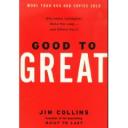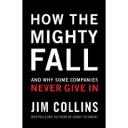 Recently I finished reading The Big Switch: Rewiring the World, From Edison to Google by Nicholas Carr (famous or infamous author, as you see it, of “IT Does Not Matter” published in the Harvard Business Review in May 2003). In it, Carr continues his argument on the changes happening the in the IT world. According to Carr, most companies will secure their IT capabilities from big suppliers off the net (what’s known as ‘cloud computing’). He uses the electric industry of the late 1800 and early 1900 as an analogy of what will happen to IT.
Recently I finished reading The Big Switch: Rewiring the World, From Edison to Google by Nicholas Carr (famous or infamous author, as you see it, of “IT Does Not Matter” published in the Harvard Business Review in May 2003). In it, Carr continues his argument on the changes happening the in the IT world. According to Carr, most companies will secure their IT capabilities from big suppliers off the net (what’s known as ‘cloud computing’). He uses the electric industry of the late 1800 and early 1900 as an analogy of what will happen to IT.
In those days, most companies had their own power plants. There were no central power plants available to provide the necessary power and, even if there had been, there were no effective distribution networks. As the technology advanced, centralized power plants with broad networks became the norm. He argues that IT is going through a similar change, a case he also expanded on in Does IT Matter? Information Technology and the Corrosion of Competitive Strategy published in 2004. But is that the case? It cannot be argued that many of companies’ IT nee ds can be provided by third-party companies, such as salesforce.com.
ds can be provided by third-party companies, such as salesforce.com.
While the jury is out, the electric industry is facing its own challenges. As organizations look to become more green and have the energy they need, big centralized power stations with large distribution networks may not be the best solution. Doubt it? Take a look at Fast Company‘s July issue and its article “Why the Microgrid Could be the Answer to the Energy Crisis“. It makes a good argument as to why having many of us considering putting up our own solar cells and windmills may be the way to go.
What does this mean to IT? Well, organizations will need IT, whether it comes from the wall provided by some big central provider(s) or its own to implement specific processes not supported by others.
And to PMs? Well, we still have to develop and deliver projects on time, on budget, and with the agreed-to functionality. We may just have to do it using some other organization than our own IT.
Thoughts?


